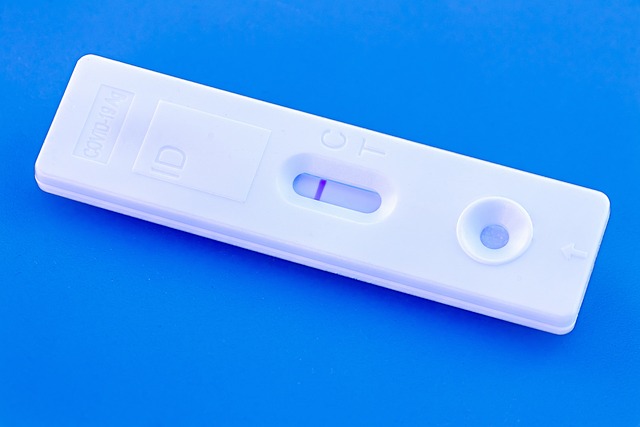Vitamin D, synthesized by sunlight, is vital for health beyond bone strength, including immunity, muscle function, and cardiovascular well-being. Regular testing via a Cholesterol Blood Test UK is crucial to monitor Vitamin D levels along with LDL and HDL cholesterol, as imbalances can lead to heart disease. Aim for optimal levels through lifestyle adjustments based on professional interpretation of test results.
“Uncover the power of Vitamin D and its pivotal role in achieving optimal wellness. This comprehensive guide explores why testing your Vitamin D levels is a game-changer for overall health. From enhancing immune function to supporting bone health, Vitamin D plays a crucial role—one that a simple Cholesterol Blood Test UK can help you understand. Dive into this article to learn about the benefits and risks of testing, empowering you to make informed decisions for a healthier you.”
- Understanding Vitamin D and Its Role in Overall Health
- Why Get Your Vitamin D Levels Tested? Benefits and Risks
- Cholesterol Blood Test UK: How to Interpret Results for Optimal Wellness
Understanding Vitamin D and Its Role in Overall Health
Vitamin D, often dubbed the ‘sunshine vitamin’, is a crucial nutrient that plays a pivotal role in maintaining overall health. Unlike many other vitamins, our bodies can produce Vitamin D when our skin is exposed to sunlight, making it both essential and accessible. However, factors like lifestyle, geographical location, and seasonal changes can impact our natural production, leading many individuals to consider Vitamin D levels testing as part of their wellness routine.
This vitamin is not just about bone health; it significantly influences immune function, muscle strength, and even cardiovascular well-being. Research suggests that adequate Vitamin D levels are associated with a reduced risk of chronic conditions such as heart disease and high cholesterol, which can be measured through a simple Cholesterol Blood Test UK. By ensuring optimal Vitamin D levels, individuals can support their overall health and contribute to a more robust defense against various health challenges.
Why Get Your Vitamin D Levels Tested? Benefits and Risks
Many people overlook the importance of Vitamin D levels testing as part of their routine wellness checks, despite its significant impact on overall health. This is primarily because Vitamin D is often associated with bone health due to its role in calcium absorption. However, research has unveiled a more comprehensive picture; Vitamin D deficiency can contribute to various health issues, including cardiovascular problems and impaired immune function. In the UK, where sunlight exposure may be limited during certain seasons, it becomes even more crucial to monitor Vitamin D levels through a simple cholesterol blood test.
By getting your Vitamin D levels tested, you gain valuable insights into your body’s nutritional status, which can have far-reaching benefits. Adequate Vitamin D levels support not only bone health but also muscle function, mood regulation, and a healthy immune system. Moreover, it plays a surprising role in maintaining heart health by influencing cholesterol levels and reducing the risk of cardiovascular diseases. However, there are risks associated with testing, such as false positives or negatives due to seasonal variations in Vitamin D production and other external factors. Therefore, consulting healthcare professionals for accurate interpretation of results is essential to ensure personalized guidance and appropriate actions based on your unique circumstances.
Cholesterol Blood Test UK: How to Interpret Results for Optimal Wellness
In the UK, a cholesterol blood test is a crucial tool for gauging cardiovascular health and overall wellness. When undergoing this test, it’s important to understand what your results mean. The two primary types of cholesterol to look at are LDL (low-density lipoprotein) and HDL (high-density lipoprotein). High levels of LDL cholesterol, often referred to as ‘bad’ cholesterol, can lead to a buildup in the arteries, increasing the risk of heart disease and stroke. Conversely, higher HDL cholesterol, known as ‘good’ cholesterol, helps remove LDL from your bloodstream, acting as a protector against cardiovascular issues.
For optimal wellness, a Cholesterol Blood Test UK results should aim for an LDL level below 3.0 mmol/L (millimoles per liter) and an HDL level of at least 1.0 mmol/L in men and 1.3 mmol/L in women. Any reading outside these ranges may indicate a need for lifestyle changes or medical intervention. It’s recommended to discuss your test results with a healthcare professional who can provide personalized advice based on your unique health profile.
Vitamin D levels testing is a valuable tool, especially in the UK where cholesterol blood tests are commonly performed. Understanding your Vitamin D status and interpreting cholesterol results together can offer a more holistic view of your overall wellness. By considering both aspects, you can make informed decisions to optimize health and reduce potential risks associated with vitamin deficiencies and high cholesterol. Regular checks and proactive healthcare choices are key to maintaining a vibrant and healthy lifestyle.
